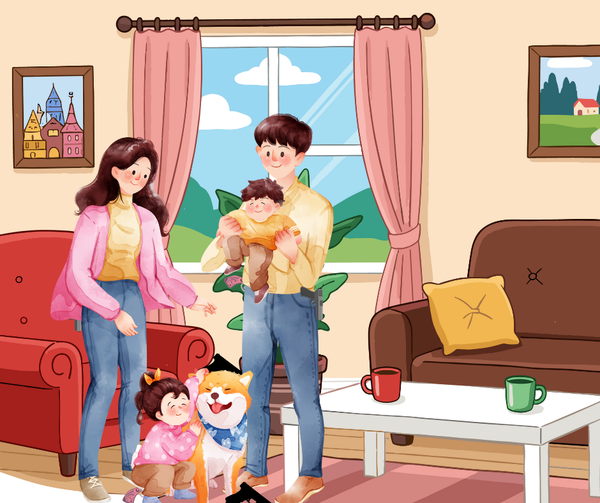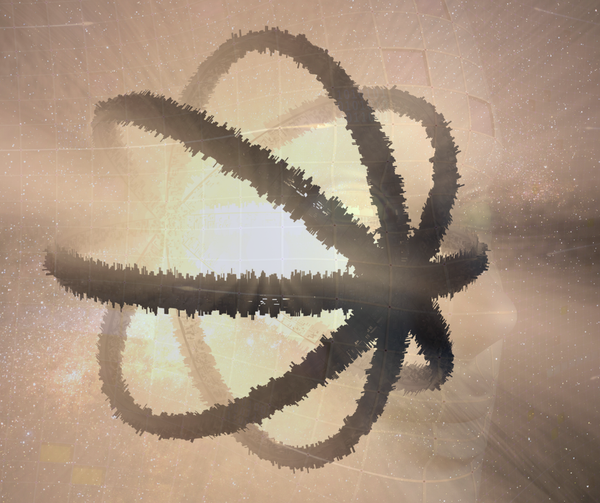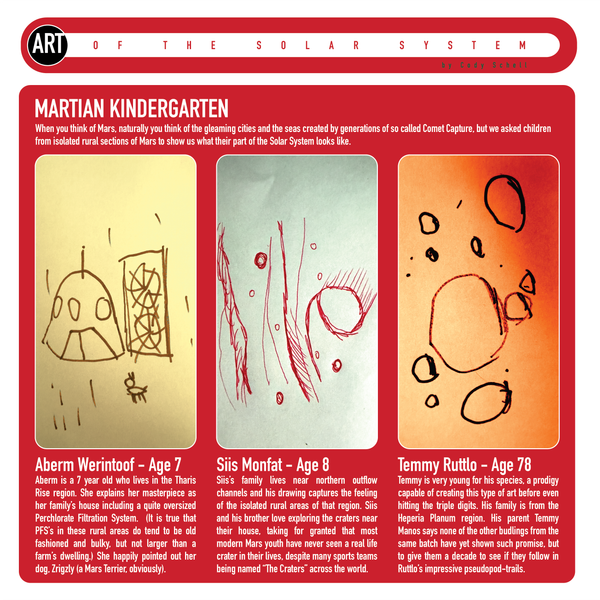Song of the Loom

by Janet Forbes
I Sang to the loom, the day my mother died.
My hands were an echo of hers. Heavy with grief, they wove eight hundred threads onto the frame, a hundred for each string of her Lyra. The weft, the framework, the heart of the weave. Each string thrummed in pale grief to my luminous song.
Singing still, I tied each umbilical string, pulling it to the earth with clay weights. Those loom weights were precious, our symbol baked deep into their faces. The Lyra. Passed to her by her mother, and her mother before her. Loom weights, Lyra, and the power of the Voice: the song that touches the heart, that brightens the sky, that imbues the world with magic. A legacy from daughter to daughter to daughter.
I wanted to scream, use my Voice to rend the heavens. But instead, I Sang: not of gods and heroes, but of small things. Sticky childhood kisses and olive oil baths and bruised knees kissed better and stories around the hearth and cuddles after lunch. The lilt of my Voice was the echo of her walk as she carried me, half-sleeping, to bed. Lullaby. Lullaby. I Sang to my loom, one lonely Voice, and filled the weft with memories.
I Sang to my threads, the day my mother’s body lay in state.
Her room was full of visitors, the good and the great, bringing gifts. They had come to say farewell, to pay their respects to her skill and her craft, her teaching and her wisdom, her friendship. They told their stories of her: far away tales from far off lands. Lulling a great monster with her music, competing before the gods for a golden apple. The house was heavy with myrrh and cardamom, a hundred perfumed oils, each the scent of her meaning. To someone else.
But I stayed away, weaving my threads back and forth, back and forth, like the needle of arguments we used to have, Singing of the small disagreements we resolved, or didn’t resolve, that never really mattered at all.
My Voice conjured recipes shared, advice gifted softly, and small moments of silence deep with love. I Sang of wine and laughter and of knowing the bond of family which sometimes stretched but never did fray, at least not so badly it could not be spliced or knotted back together.
Her body was a soundless husk, withered to nothing but echoing spaces. Her Voice was gone. I wanted to wail, but instead I Sang. I Sang my memories into the weave.
I Sang to the hems, the day my mother burned.
I would not watch her frail corpse go up in flames. I had seen her burn in life—resplendent with magic as her songs wove an avenging phoenix, or a cloud of petals sketching poetry through the air. I held her once-strong, small-boned hand as she died. I did not need to see her empty shell.
So instead, I stitched. My Voice wanted to sob, but I coaxed it, a sparrow with a crumb. I Sang sotto voce of my plans, of the woman I would become. Not so different, for all the squabbles, from the woman my mother had been. I Sang my becoming. I Sang my hopes and dreams into the hems.
And when I was finished, I lifted the shawl, draped it around my shoulders. Each strand was a magical memory, Sung into the very fibres of the weave. As my mother had been Sung into the very fibre of me. It shone, as she had done. Resplendent.
Her Lyra was my honor now, an instrument to lift my Voice. Her loom weights were my burden, my duty. My Voice was my own, but she had taught me. Taught me well.
I drifted out of the house, through the courtyard past mourners feasting on stuffed almonds and grapes and wine, my shawl of memories glowing on my shoulders like a torc. If they spoke to me, I did not hear it.
In the dimming light, piled around with offerings of amphorae and fine silks, her funeral pyre smouldered still, after all these hours. Maybe this was always her true form, merely captured for a time in meagre flesh? She had always seemed the stuff of embers and stardust.
My throat was thick with unwept tears. But I Sang. I Sang and I Sang, her Lyra lifting my Voice, my memories of her bursting into bright life in the sky above the dusky courtyard. The mourners gathered around in silence as I showed them what they expected: a woman who took on dragons, the hero they had known darting through the night sky and fading to starlight. My own mourning would be done in private.
Still, this was not goodbye. For how can you say goodbye to a piece of yourself? Instead, my mother’s Voice had passed on to become part of the great symphony, the complex polyphony of the swirling universe, a shining thread in the weave of the world. If I listened hard, I would always hear her. And with our memories Sung into the weave, I would always feel her embrace on my shoulders.
I had walked in her footsteps and by her side. And now it was my turn to tread the untrod path. To take the song into the unknown darkness of the future and make my own footprints.
At last the sun set, and I walked away. I walk still. But I am not alone. I am always illuminated by her shawl, her embrace, my Song of her.




